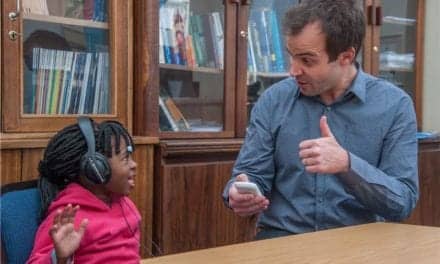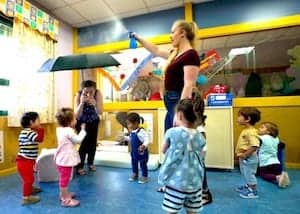Editor’s note: In response to feedback from many people questioning its merits, the ACLU of Delaware (ACLU-DE) is reviewing its recent complaint filing with the U.S. Department of Education’s Office of Civil Rights (OCR) regarding alleged discrimination against deaf and hard-of-hearing students by the Delaware Department of Education (DDOE).
“We will be following up with more detailed information” the ACLU of Delaware said in a release. “An important point we wanted to clarify is that we understand the importance of ASL to deaf and hard of hearing children and Deaf culture. We support sign language acquisition for deaf and hard of hearing children, and we would oppose any efforts to limit access to ASL in Delaware. We will be working closely with community members to make sure that our work does not in any way impede children’s ASL education.”
The ACLU of Delaware (ACLU-DE) filed a complaint with the U.S. Department of Education’s Office of Civil Rights (OCR), calling on the agency to investigate the Delaware Department of Education’s (DDOE) alleged systemic discrimination against deaf and hard-of-hearing youth, including lack of access to vital therapy programs and over-referrals to Delaware School for the Deaf.
The complaint alleged that the practices violated the Americans with Disabilities Act (ADA) and Section 504 of the Rehabilitation Act (Section 504).
According to a press release from the ACLU of Delaware, for deaf and hard-of-hearing children, Listening and Spoken Language (LSL) therapy, is considered a “gold standard” approach designed to teach a child to use the hearing provided by a hearing aid or a cochlear implant for understanding speech and learning to talk—a process that is an integral part of the child’s communication skills and impacts their socialization and learning for the future. The ACLU-DE claimed that “LSL therapy is most effective between the ages of 0 to 3, and because the window for treatment is so small, it is critical that students are given access to LSL as early as possible to optimize their chances of being able to use spoken language throughout their lifetime.”
Under Delaware’s birth mandate, children are protected by IDEA-funded programs at the moment when their hearing loss is detected. Such protections should guarantee access to critical therapy like LSL, the organization attests, yet despite ACLU-DE’s repeated attempts to obtain basic information about Delaware’s LSL program, the organization says officials refused to provide any records to demonstrate that the state has been providing the therapy that it claims to offer.
“After seven years of successful operation starting in 2013, the LSL program suddenly stopped receiving referrals,” says Nick Fina, Project Lead for CHOICES Delaware, a grassroots organization that helps Delaware parents advocate for their children with hearing loss.
Further reading: ACI Alliance Raises Concerns Over AAP Pediatric Hearing Assessment Recommendations
In October, DDOE officials admitted in an email exchange to a parent seeking LSL services for their child that there is only one LSL provider in Delaware, and that when that provider took a multi-month leave, the state had no plan or structure in place to provide critical LSL services to its deaf and hard-of-hearing youth.
The complaint also alleges that DDOE over-refers students to Delaware School for the Deaf, and thereby violates students’ rights to be educated in their “least restrictive environment” under the ADA and Section 504. The ACLU attests that on average across the country, only 9% of K-12 children with hearing loss attend a school for the deaf, but in Delaware, that number is over 40%.
“Deaf and hard of hearing children and their families occupy a unique space in the law and have special legal protections,” says special education attorney Caitlin McAndrews of McAndrews, Mehalick, Connolly, Hulse and Ryan P.C. “For children learning to communicate and understand using spoken, aural language, research-based therapy at a very young age is both critical to cognitive development and legally required. We hope that the state will recommit to delivering high-quality LSL therapy to this young population that literally cannot speak for itself.”
Photo: Dreamstime





